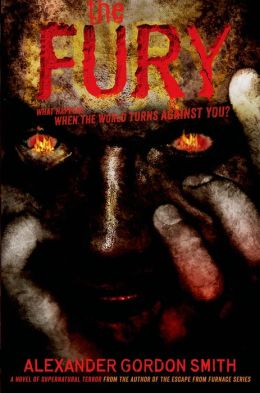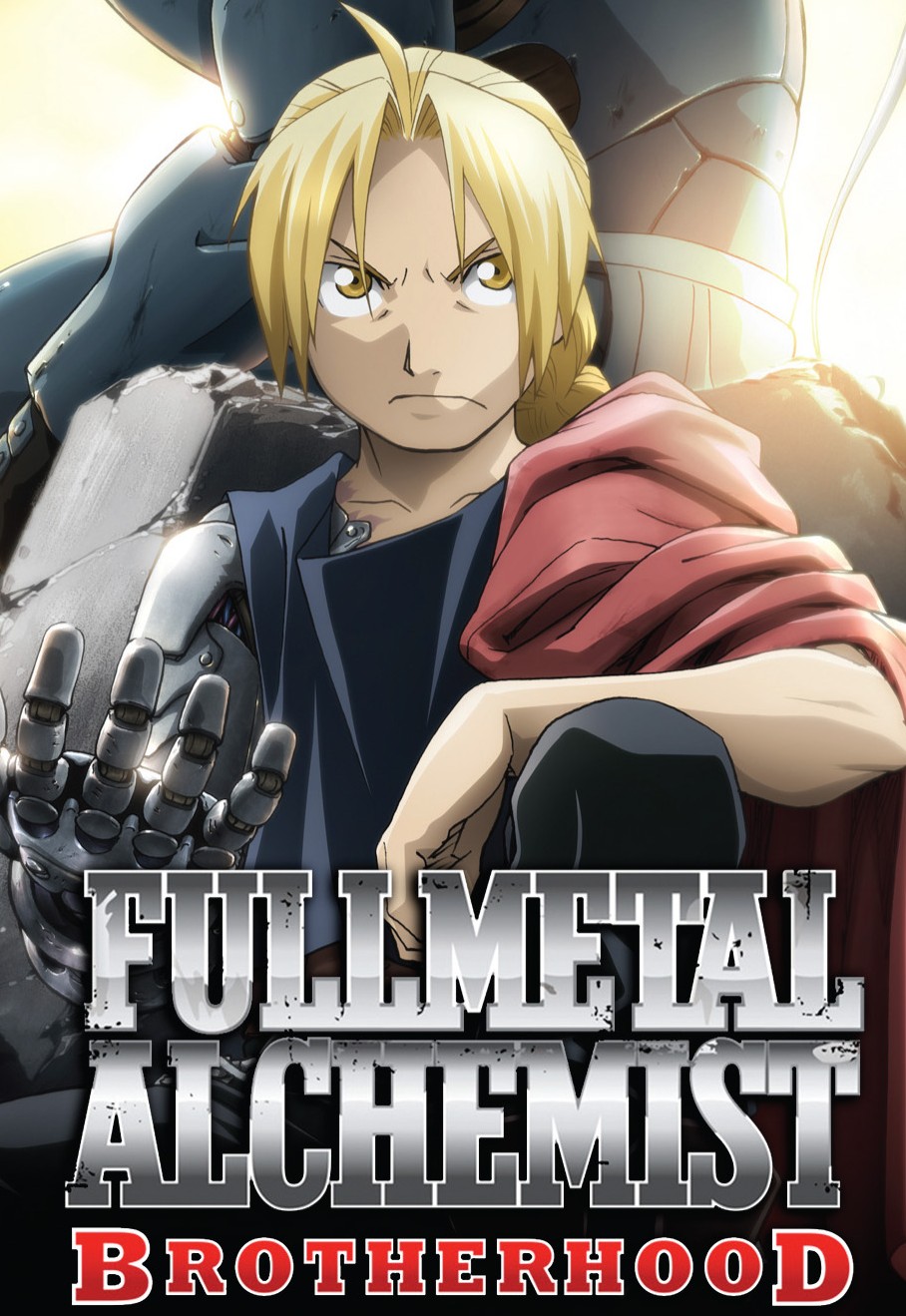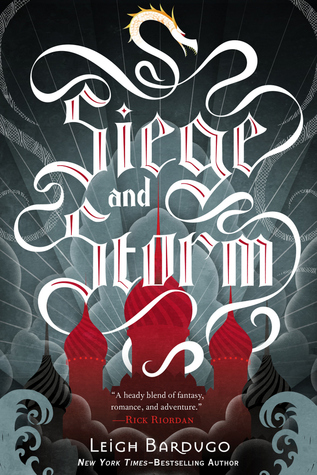Today I am very pleased to host the amazing Alexander Gordon Smith! Gordon has written the fabulous horror series:
Escape from Furnace and the more recent
The Fury (NOTE: The Fury is NOT the same series as the Furnace books. It is a different story all together). Here he is talking about a topic that I find particularly fascinating (and apparently he did too! This guest post is LONG!)! There's a giveaway at the bottom!
How to write horrible things without being a horrible person
By Alexander Gordon Smith
Hi Enna, thanks so much for inviting me onto your blog to talk about The Fury, it’s awesome to be here!!
I think those exclamation marks and that smiley face are the perfect introduction to what I wanted to talk about today. It’s funny, as when I meet people who have read my books they are often quite surprised. A common reaction is something along the lines of, ‘Oh, you’re quite nice in real life, I thought you’d be a horrible, furious serial killer or something.’ The irony is that even though I’m the author of The Fury, I can’t imagine a less furious person than myself!
The same can be said for most of the horror authors I know. They all seem to be extremely content, affable, good-natured and, if anything, a little shy. There’s not one monster amongst them (well, not in public anyway, who knows what anyone is like behind closed doors)! It’s an interesting point, because you’d have thought that in order to write some of the horrible things that we do, you’d have to be a horrible person, or at least have horrible thoughts. In reality, though, I think it’s completely the opposite. I think that for some reason, people who write horror tend to be some of the nicest people in the world. And I think it’s horror that makes us so nice.
It has taken me a while to think about why this might be, and I guess the obvious answer is that by writing horror we get something out of our system. If we’re upset, we take it out on our stories. I know that’s definitely the case with me. Ever since I started writing, when I was very young, I wrote as a form of therapy (although I had no idea this was the case when I was younger, I just knew it made me feel better). If I was upset, or scared, or frustrated, or anxious, or lonely, I would sit down and write something. These somethings were almost always horror, and they were pretty horrific!
I don’t remember too many of them, and most have sadly been lost along the way. But one that I do vividly remember is a story I wrote at school, when I was about thirteen and having a bad time with some of my teachers. I penned a gratuitously gory short story about a serial killer who murdered them all! I didn’t pull any punches, and some of my teachers died in unspeakably horrific ways. I remember my English teacher pulling me out of class when she had marked it, and asking me – quite concerned – if everything was okay at home, and whether I needed to see the school counsellor (she did give me an A, although whether it was because it was a good story, or she was the only one who didn’t die in it, or she was just terrified of me after that, I’ll never know). What I should have said in reply, but what I didn’t really understand at the time, is that I didn’t need to see the counsellor because I had my own silent form of therapy.
I can’t say whether writing those stories made me a happier person – it was too long ago now. But I’m

pretty sure it did. Writing gave me a form of power, gave me ownership over my own life at a time – my teenage years – when life really felt like it was spinning out of control. I mean, I wasn’t a particularly unhappy kid. I had a great childhood, a loving family, less friends than most but they were great friends. Apart from a couple of blips, it was a dream. But no matter what your circumstances, everyone’s adolescence is a weird and often scary time. I remember being angry a lot. That anger is where the inspiration for Brick in The Fury came from. In fact, it has been the inspiration for so much of what I write – one of the core themes of the Furnace books was anger, and how it changes us. Thinking back, though, I was always angry before I wrote. I never remember being angry afterwards. It allowed me to channel my emotions, to focus that churning, howling mass of teenage angst into something else, something I had an element of power over. Seeing those characters battling their problems, and knowing that their solutions came from my own head, let me know that however bad things seemed I had what it took to overcome, to survive.
Writing still is a form of catharsis for me. I know for a fact that the times I don’t write are the times I get most stressed, most angry, most irritable. If I go a long time without writing – something that has happened this year, actually, although I’m writing again now thank goodness – then I get seriously anxious about anything and everything. I really do feel like things are tumbling out of my grip, that I can’t cope. As soon as I start a new project, though, it all settles down again. When I’m in the middle of writing a book I feel like I’m on top of the world, like nothing can bring me down. It’s an incredible feeling! Of course I’m always nervous about the story itself – is it any good? Will anybody like it? – but all the other worries in my life just get funnelled through my psyche and into the story. They just don’t seem significant any more.
On the same note, horror writers also have the added advantage of being forced to face up to their own fears. I wrote earlier in this blog tour about how one of the best ways to craft a scary story is to write about something that scares you. By doing that, you have to examine that phobia a great deal more intimately than you might like to. When you write about these fears, the same thing happens – you gain power over it, you own that fear. It’s an incredibly powerful way of conquering the things that scare you. So I guess that’s one of the reasons horror writers tend to be nice people – we have a way of dealing with the things that bother us, we can channel that fear and fury into something creative. It’s like taking a Valium, it makes everything seem quite pleasant and lovely. As long as I’m typing, everything is fine!
Incidentally, I get sent a huge amount of writing from young writers looking for feedback. I love reading other
people’s stories, especially as maybe 99% of the ones I am sent are horror stories. It’s so awesome to see so many teenage writers taking to horror – I think it’s one of the healthiest things you can do at that age. Absolutely anyone can be a writer, and I think it’s something everyone should try – even if you’re not interested in it as a career, it is such a valuable tool for getting control over your own life and emotions.
I was talking to my daughter about this post earlier, and she brought up another really interesting point: empathy. Horror writers are pretty evil, when it comes down to it – creating characters then turning their world into a nightmare. But it’s hard. I mean, you get SO attached to those characters when you’re writing, and when bad things happen to them (bad things you didn’t always see coming, especially if – like me – you don’t plan your books) it is absolutely devastating. Characters die fairly regularly in my books (sorry guys!), and every time it happens I feel like a little part of me dies too. I got so upset at the end of the Furnace series that I swore I’d never write anything again, it was just too upsetting. And I was the same at the end of The Fury – not at a death, but… well, you’ll see if you read the book. I feel like I have lost my friends, my family, and it completely crushes me each and every time.
But the fact that I find it hard is important, I think. We have to empathise completely and utterly with these characters. We are those characters, and when we go through such terrible things we learn to understand people, to share in their fears and loves and triumphs and losses. We can sympathise with others under any circumstance, and I think it makes us more patient and less likely to criticise (although my girlfriend may disagree with that last statement in my case)! We spend our lives trying to get people we love out of trouble, going through hell with them, fighting tooth and nail to keep them alive and happy (even when the cause of those dangers and unhapinesses are our own doing). All we want to do is help people! Writing horror gives you an overwhelming affinity with and love for the human race.

Well, this blog post has gone on for a little longer than I had planned, but it’s just such an interesting subject! There are a couple more reasons why I think horror writers are generally nice people – if anyone gets on our nerves, we can kill them in spectacularly gruesome ways and not go to prison! I know I for one am guilty of this. If there is somebody I am angry with, for whatever reason, I put them in a book, under a thinly veiled pseudonym, and then watch them die a grisly death. *Evil Laugh* I probably shouldn’t confess to that, and I’m certainly not going to go into details, but it is immensely satisfying, and really does help alleviate the anger. It’s worth trying even if you aren’t into writing – you might find it helps if somebody is really getting you down!
But maybe the reason horror writers are often the happiest people in the world is simply because we love our jobs so much. A writer is the only thing I have ever truly wanted to be, every since I was six years old. And here I am doing it for a living! I feel like the luckiest guy on the planet, and every morning when I wake up I can’t believe how awesome it is. I walk around most of the time in a complete daze of undiluted happiness, so it’s no wonder I don’t come across as a serial killer! In all seriousness, though, writing has a million therapeutic advantages, and is there for everyone. Anyone can write, and even if you’ve never considered it, you might find it can do amazing things for your emotional wellbeing, your confidence, and your outlook on life. Give it a go, write something gory and gruesome, and you might find yourself smiling!
Thanks again so much for letting me guest post on your blog, Enna, it has been a real journey of self-discovery!
a Rafflecopter giveaway

All review content © Enna Isilee, Squeaky Books 2007-2012









 Release Date: February 12th, 2013
Release Date: February 12th, 2013








 Release Date: July 23rd, 2013
Release Date: July 23rd, 2013










